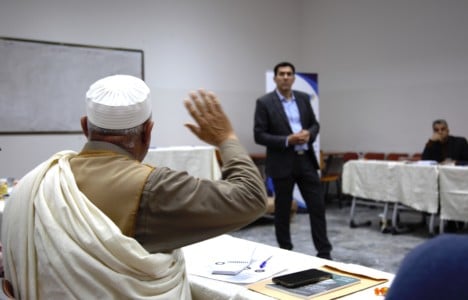Libya
Thematic: Humanitarian Norms
Since 2011, Libya has been afflicted with protracted conflict among diverse armed actors and shifting struggles for power. International efforts to deescalate conflict led to the Berlin Conference in 2020 and the Berlin process to support stabilization in Libya. In March 2021, the Government of National Unity (GNU) was formed in Libya to administer elections in December 2021. As elections did not take place, the country has relapsed into a political crisis, with two parallel Governments contesting each other’s legitimacy since March 2022. Despite the current crisis not having led to a return of violence, tensions remain high due to the continues proliferation and growing influence of armed groups.
Between opposition armed actors, ethnic/tribal ones and armed actors in transition, the level of awareness, training, and accountability in relation to their obligation to comply with international humanitarian norms remains extremely low. As a result, humanitarian access is continuously and opportunistically impeded and civilians in Libya continue to face widespread protection risks and remain at risk of grave violations of humanitarian norms, in the event of a conflict, both local and large-scale.
Geneva Call has been working in Libya since 2017 to improve the protection environment for vulnerable communities, specifically through working towards an increased compliance of armed actors to international humanitarian norms.
Geneva Call’s impact in Libya
• Geneva Call provided training on child protection and the protection of schools to around 200 relevant professionals and provided small grants to carry out child protection activities in their communities.
• Geneva Call also organised a high level conference with members of the Government to discuss challenges and implementation of child protection regulations. As a result, in 2022 the Ministry of Defence started working on a draft law for the prevention and penalisation of child recruitment into armed forces, and the Ministry of Justice initiated a consultation process to adopt the Safe School Declaration.
• The establishment of an IHL network, bringing together Libyan CSOs operating in East, West and South Libya, as well as ongoing capacity building and financial support through a small grants programme by Geneva Call led to the implementation of far-reaching IHL dissemination activities with academics, journalists, jurists and civil society activists, as well as mass-media campaigns, thus multiplying Geneva Call’s awareness-raising efforts.
• Following past efforts and consultation with religious leaders from different Islamic currents. Geneva Call in collaboration with a university undertook a comprehensive mapping of religious actors and their influence over armed actors. The main findings of this research were shared with INGOs, UN agencies and donors during a regional conference that included reflection on the operationalisation of the findings.
KEY DATA
2 ANSAS in Libya engaged on one or more thematic area
96 INCIDENTS OF CHILDREN KILLED OR MAIMED AND 166 GRAVE VIOLATIONS COMMITTED AGAINST CHILDREN (source: June 2021 UN Secretary General’s Report on Children in Armed Conflict reports)
DIRECT ENGAGEMENT with the leadership of armed groups with the objective of providing them with in‐depth training sessions
DISSEMINATION of our adapted Fighter not Killer campaign in Libya
